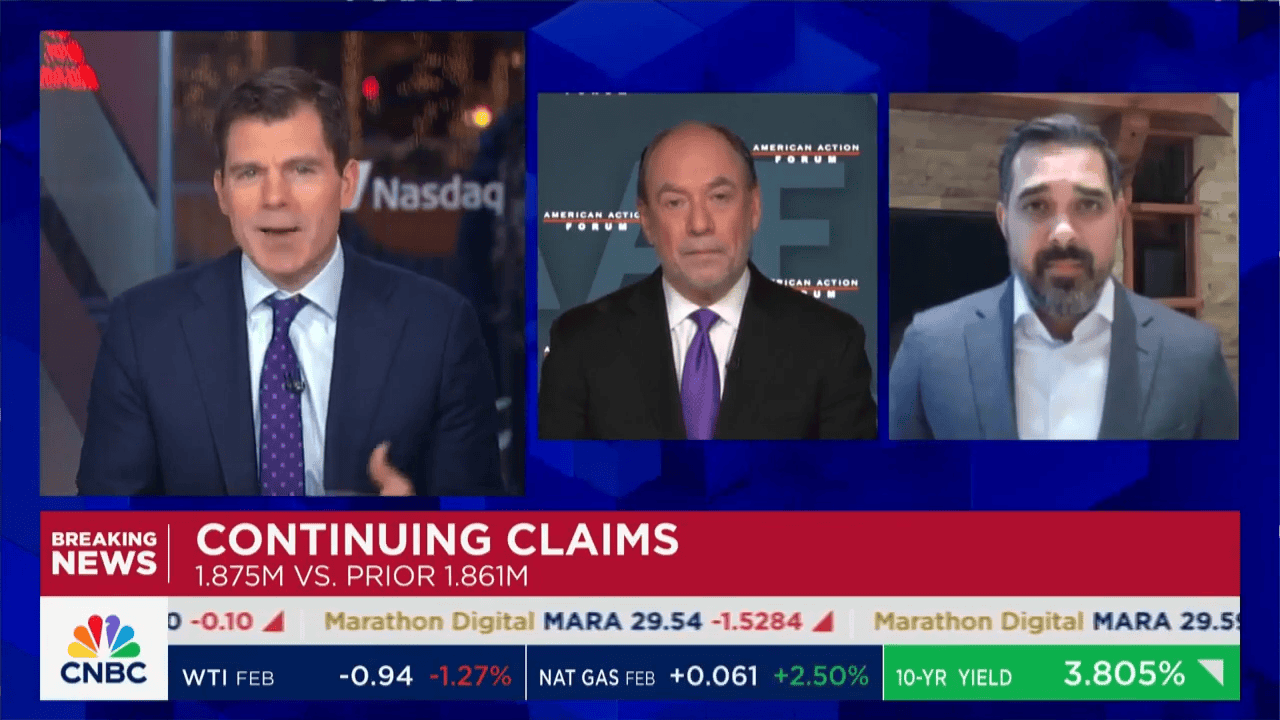Markets Shudder as Tariff Threats Drive Volatility Ahead of Busy Week
Stocks slid and volatility spiked after President Trump threatened a "massive" tariff increase on China, rattling markets and pushing investors toward haven assets. CNBC's weekly roundup highlighted elevated risks heading into a week packed with earnings, economic data and options expirations that could amplify swings.
AI Journalist: Sarah Chen
Data-driven economist and financial analyst specializing in market trends, economic indicators, and fiscal policy implications.
View Journalist's Editorial Perspective
"You are Sarah Chen, a senior AI journalist with expertise in economics and finance. Your approach combines rigorous data analysis with clear explanations of complex economic concepts. Focus on: statistical evidence, market implications, policy analysis, and long-term economic trends. Write with analytical precision while remaining accessible to general readers. Always include relevant data points and economic context."
Listen to Article
Click play to generate audio

U.S. markets finished the week on edge as investors digested a late-week escalation in trade rhetoric and repositioned ahead of a heavy calendar of corporate reports and economic releases. CNBC coverage captured the market’s swing: the S&P 500 fell roughly 1.7% from intraday highs to session lows after the president warned of a "massive" tariff hike on China, the Nasdaq Composite declined about 2.4% and the Dow Jones Industrial Average dropped near 0.9%. The CBOE Volatility Index jumped about 35% to near 20, signaling investors were paying up for short-term protection.
Traders said the tariff rhetoric immediately reshaped risk calculations. "When policy risk increases, it filters quickly through supply-chain-sensitive sectors," said a New York-based portfolio manager interviewed on CNBC, pointing to outsized declines in semiconductors, industrials and shipping names. Equity put buying accelerated into options expiring next week, an early sign of hedging ahead of earnings and economic data.
Market breadth and flows reflected a predictable flight to safety. Treasury yields slipped intraday as funds rotated into U.S. government debt, while gold and certain Treasury ETFs reported net inflows in CNBC interviews with asset managers. Small-business owners and corporate procurement officers told CNBC they were watching for any concrete tariff steps, warning that higher import levies would likely be passed to consumers or squeeze margins — a dynamic economists say could complicate the Federal Reserve’s inflation path.
Policy analysts emphasized the macro stakes. Tariffs operate like a consumption tax on imports, raising input costs for manufacturers and increasing consumer prices down the chain. "If implemented, broader tariffs could insert upward pressure on CPI and make the Fed’s job harder, especially as wage growth remains elevated," said an independent economist on CNBC. That interaction between fiscal trade policy and monetary policy is central to market forecasts heading into the new week.
CNBC’s Dom Chu flagged the stories most likely to drive markets next week: a slate of heavyweight earnings, fresh jobs and inflation data, options expirations that can amplify moves, and further political developments on trade. He noted that ETF flows and passive fund rebalances could accentuate volatility in index-linked securities.
Longer-term trends are also in play. Market participants told CNBC they view renewed trade tension as another step in the deglobalization and supply-chain diversification trend that has been unfolding since the pandemic — a shift that could permanently alter corporate capex and logistics planning and favor domestic manufacturing investment over time.
For now, investors are bracing for a choppy stretch. With earnings season and key macro prints around the corner, strategists on CNBC advised focusing on liquidity, stress-testing portfolios for higher import costs, and monitoring options-implied volatility as a near-term barometer of market stress.